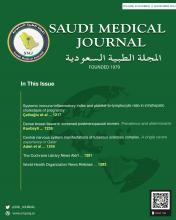SEPTEMBER 23, 2024 - Although advances in treatment have led to decreased cancer mortality over the past decade, the growing numbers of cancer survivors may experience long-term effects of cancer and anticancer therapies. For example, the heart may be especially vulnerable to inflammation triggered by cancer and toxic effects from chemotherapy and radiation.
To investigate cardiovascular disease incidence in older cancer survivors and the impact of specific cancer treatments on heart health, a team led by Monash University’s Suzanne Orchard, PhD analyzed information from the ASPirin in Reducing Events in the Elderly (ASPREE) trial, which included adults aged 70 years and older who were living in Australia and the United States.
Other studies have observed cerebrovascular diseases such as stroke and heart attacks following cancer treatment, but to the authors’ knowledge, this is the first that has explored the effects of individual treatment modalities on different cancer types, along with the impact of aspirin on rates of cerebrovascular diseases.
Of the 15,454 participants, 1,392 developed cancer over an average follow-up of 4.6 years. When the researchers assessed which participants experienced a cardiovascular disease event including stroke, heart attack, or hospital admission for heart failure, they found that the rate was twice as high in those who developed cancer compared with those who were cancer-free, at 20.8 versus 10.3 events per 1,000 person-years. (This means there would be an average of 20.8 and 10.3 cardiovascular disease events among 1,000 people over one year in the respective groups.) This elevated risk - which was seen across the different cardiovascular outcomes - remained even after accounting for traditional cardiovascular disease risk factors.
The incidence of cardiovascular disease events was greatest in patients with metastatic, blood, and lung cancers. Also, chemotherapy was associated with a 2-times higher risk of cardiovascular disease events.
Analyses were inconclusive regarding other systemic therapies such as hormonal therapy, targeted therapy, immunotherapy, and radiation therapy - although thoracic radiation is known to confer an elevated risk. Aspirin (the clinical trial intervention in the trial) did not impact cardiovascular disease incidence.
Dr. Orchard stressed the importance of early screening and preventive measures as early as possible and the need for continued research to further protect cancer survivors’ cardiovascular health.
“Our research contributes to the growing body of work indicating that cancer- and treatment-related cardiovascular disease is a very real risk in cancer survivors,” she said. “Cardiovascular disease can have a significant impact on both quality of life and survival for patients with cancer. Fortunately, with early screening and preventative measures, some of the cancer-related risks can be mitigated.”
Full Citation: “Cardiovascular disease and stroke following cancer and cancer treatment in older adults.” Jaidyn Muhandiramge, John R. Zalcberg, Erica T. Warner, Galina Polekhina, Peter Gibbs, G J. van Londen, Wendy B. Bernstein, Finlay Macrae, Andrew Haydon, Jeanne Tie, Jeremy L. Millar, Victoria J. Mar, Lucy Gately, Andrew Tonkin, Leslie Ford, Asad Umar, Andrew T. Chan, Robyn L. Woods, and Suzanne G. Orchard. CANCER; Published Online: September 23, 2024 (DOI: 10.1002/cncr.35503).
URL Upon Publication: http://doi.wiley.com/10.1002/cncr.35503
Copyright © 2021 The Cochrane Collaboration. Published by John Wiley & Sons, Ltd., reproduced with permission.
- Copyright: © Saudi Medical Journal
This is an Open Access journal and articles published are distributed under the terms of the Creative Commons Attribution-NonCommercial License (CC BY-NC). Readers may copy, distribute, and display the work for non-commercial purposes with the proper citation of the original work.






